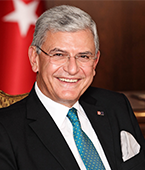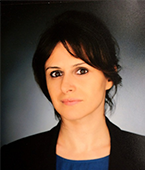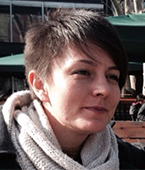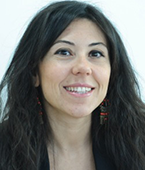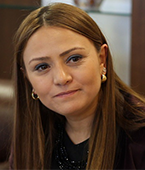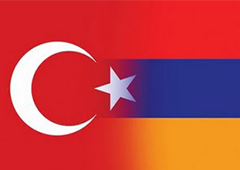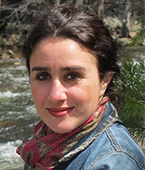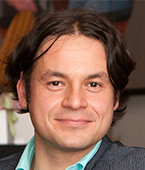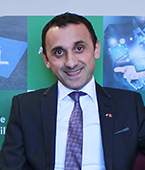
|
|
Winter 2014 Vol.13 No.4

|
|
|
D. Nigâr Göksel
“This issue of Turkish Policy Quarterly (TPQ) focuses on the democratic challenges Turkey faces on a wide range of policy issues, from the Kurdish peace process to the governance of the Internet, and from social policies to the implementation of rights for the disabled. As the general elections scheduled for June 2015 draw near, we also take up highly topical dimensions such as party financing, election monitoring, and the dynamics of political activism in various segments of society.”
“Our authors assess the country’s tense political polarization, which is reflected in every sphere – from social media to public squares. As always, we tread a constructive line, stimulating critical debate, and providing perspectives from not only politicians from different parties, but also academics, entrepreneurs, practitioners, and grassroots activists with differing convictions.
”

|

|
|
|
Volkan Bozkır
“The ‘New Turkey’ discourse depicts a stronger, more prosperous, respected, and democratic country, which is used as a role model in the region for its economy, science and technology, politics, and social and cultural policies. The EU accession process is undeniably an indispensable part of this goal.”
“Turkey’s New EU Strategy, announced on 18 September 2014, is based on three pillars: determination in the political reform process, continuity in socio-economic transformation, and effectiveness in communication.”
“Turkey-EU relations are strong and sustainable, as they are based on a ‘win-win’ strategy. Turkey and the EU share mutual benefits in many areas, ranging from foreign policy, economic and trade relations, energy supply, and security to border management, employment, and migration policies.”

|

|
|
|
Selahattin Demirtaş
“One of the main principles we have been advocating for the 24 years since our political representation in Parliament began with the Democracy Party (DEP), is to ground our policies in the understanding that the resolution of the Kurdish Problem cannot be considered separately from the democratization of Turkey.”
“Large segments of [Turkish] society began questioning, discussing, and understanding the ‘others,’ and are seeking answers to what the Kurdish Problem is, what the Kurds demand, and who the Kurds are for the first time.”
“Democratic autonomy and the idea of going beyond the nation-state idea represent a further demand, a progressive step for Kurds as well as for the people of the Middle East.”

|

|
|
|
Gürsel Tekin
“The implementation of urban transformation in the AKP period has targeted low-rise shantytown areas that are located close to city centers and divided into large parcels, as these were the areas that would render the highest levels of income after demolishment.”
“Although [the government] seems to act on the basis of the need to reduce risks posed by earthquakes and other disasters, the real intention is the development of luxurious and expensive projects for Istanbul and other cities.”
“When CHP is in power, it will put an end to the evacuation-oriented concept of ‘urban transformation’ that excludes the inhabitants of an area, that seizes the income generated and transmits it to luxury construction firms, that purges people from their dwellings in city center, and that totally disregards tenants – the pauperized segments of society”

|

|
|
|
Ebru İlhan
“The AK Party is very serious about navigating the social media space professionally. It fortifies its social media presence by engaging so-called 'AK trolls,' partisans with fake social accounts or avatars distributing party propaganda and attacking anti-government users on social media, which indicates that the party configures its social media strategy as an offensive against its digital enemies.”
“The post-Gezi new media conversation is no longer a policy dialogue between a government and relevant social actors. For communities who are/feel marginalized and persecuted by the Turkish state and the ruling elite, the 'new media conversation' is rather a bottom-up, discursive, and literal battle against oppression.”

|

|
|
|
Ahu Yiğit
“During the Gezi Park protests it was via street art, graffiti, and slogans that humor gave voice to participants’ demands and frustrations. The protests attracted a larger audience and wider participation, ending in the security forces’ heavy-handed repression.”
“The Facebook group, Felsefeasdfghjklşi, portrays philosophers speaking the language of Turkish politics. The outcome is lines of present-day Turkish political rhetoric spoken by the likes of Michel Foucault, Ulrich Beck, Hannah Arendt, and Max Weber. The featured lines are often in stark contrast with these philosophers’ own personas and thinking. One can see Marshall McLuhan, the communication theorist who has coined the motto ‘the medium is the message,’ calling Twitter ‘…the menace of contemporary societies, a hotbed of lies!’ – a direct quote from Erdoğan.”

|

|
|
|
Sercan Çelebi
“Oy ve Ötesi (Vote and Beyond) was formed with three concrete, concise, and objective targets that, if executed well, would present a first opportunity to train the forgotten muscle of collaboration towards impact. The three targets we chose to focus on were voter turnout, transparency around individual candidates, and independent election monitoring.”
“In the current system where candidates are determined centrally rather than through a primary election, the ‘customer’ for a candidate is first and foremost the party leadership. The result is that voters, particularly in urban areas with large populations, typically do not even know the name of the MP for whom they are voting. This, in turn, has an impact on direct accountability.”

|

|
|
|
Sezen Yalçın
“During Gezi, people not only resisted the physical destruction of parks for the government’s economic gain and occupation of the streets by police, but also stood up against the idea of being deprived of spaces in which to express ideas, opinion, anger, and dissent publicly.”
“By defining what falls in the political order and what (and who) is left outside of it, President Erdoğan attempts to set the boundaries of political space without taking into consideration people’s agency.”

|

|
|
|
Seda Kırdar
“The 10 percent threshold in Turkey’s general elections makes it almost impossible for smaller political parties to function and survive. This rule eliminates the possibility of small parties entering the Grand National Assembly of Turkey and, therefore, distorts the principle of fair representation, which in turn prevents parties from having fair access to potential financing.”
“Disclosure of party incomes is absolutely essential for empowering voters. It enables citizens to fulfill their political responsibilities and make informed choices in elections. A full disclosure of party and candidate funding is also crucial in the fight against corruption and the effort to maintain citizens’ trust in politics.”

|

|
|
|
Nick Danforth
“Menderes’s decade in office offers an all-too-familiar example of courageous democratic aspirations collapsing into paranoid authoritarianism. Menderes’s fate, meanwhile, helps explain how today, following increasingly serious accusations of corruption and authoritarianism, Erdoğan’s presidential ambitions could win the support of the majority of Turkey’s voters.”
“The rise of the AKP becomes the culmination of a century-long clash between Atatürk’s secular, Western modernity and a more authentic alternative rooted in popular Islam. The Menderes government, in turn, appears as an intermediate step in this larger transformation.”

|

|
|
|
E. Sare Aydın Yılmaz
“The [feminist] policies developed to improve the status of woman in society that were put forward on a social level and implemented on the basis of modernity’s standardizing concept of women ignored the differences between men and women, only enabling women to attain certain positions through masculinization.”
“The fact that the duty to administer the institution of the family, which is required to ensure the continuance of this institution, has been laid upon men does not generate a hierarchical order in any sense and does not prevent the equality between women and men with regard to being human beings and subjects of God.”

|

|
|
Egemen B. Bezci
“While the Turkish government firmly rejects the idea of a third eye – a neutral player to monitor the disarmament process – this problem has steadily risen to become the major challenge for the Kurdish peace process.”
“The PKK will try to exploit its improving reputation in the West by publicly increasing its demands on the Turkish government. It will primarily criticize the Turkish government for not easing its attitude towards the PKK, which is a major fighting force against the West’s common enemy, ISIL.”

|

|
|
|
F. Hill, K. Kirişci, & A. Moffatt “The current efforts to normalize diplomatic relations could also help push along the process of Turkish-Armenian societal reconciliation. The idea of promoting reconciliation through official normalization would be in line with the ideas and legacy of Hrant Dink, a Turkish-Armenian journalist from Istanbul, who was assassinated in January 2007 by a young Turkish nationalist.”
“Moving beyond the anniversary of 2015 will be a significant challenge. Armenian distrust in Turkey’s intentions was exacerbated by the April 24th Gallipoli commemoration rescheduling and invitation. This will inhibit progress in the near future. Once April 24th has passed the issue of Nagorno-Karabakh conflict will continue to plague Turkish-Armenian relations.”

|

|
|
Anna M. Beylunioğlu
“It is true that the AKP government adopted a relatively positive attitude towards non-Muslims compared with previous governments, but the transformation process still has limitations. To date, the non-Muslim communities of Turkey remain deprived of legal personality, and the issue of board elections for foundations, which had been suspended by governmental decree, is still waiting for a solution.”
“The [government’s] approach to non-Muslims is increasingly shaped through an emphasis, albeit implicit and indirect, on the superiority of Islam over other religions. The insistence on turning the identically-named Ayasofya (Hagia Sophia) museums in Istanbul and Trabzon into mosques fed this perception.”

|

|
|
Emre Üçkardeşler
“In Turkey, most social spending is related to pension payments and healthcare expenditure, whereas income support for the working-age population, especially social assistance, is low.”
“Contemporary Turkey has the third-highest level of income inequality and the third- highest level of relative poverty of all OECD countries. Against such a background of poverty and inequality, Turkey needs to devote a larger share of its social spending to social assistance, income support, and social services programs.”

|

|
|
Mehmet Evsen
“The Turkish Ministry of Labor and Social Security aimed to employ more than 30,000 disabled workers and civil servants throughout 2014. This seems to be a giant leap forward, but it appears that the quality of employment opportunities that people with disabilities are offered is very often poor, menial, and not suited to their abilities.”
“With the advancement of technology and the relatively low cost of equipment, the disabled community now has access to technology that opens up a new world of opportunity. A position in the technology industry is now commonplace for many people with disabilities.”

|

|


|
This issue is supported by
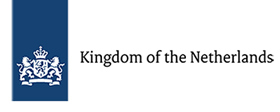

|
Thanks to our Partners



|
|
|
|































